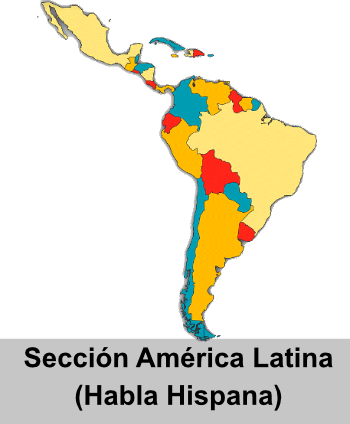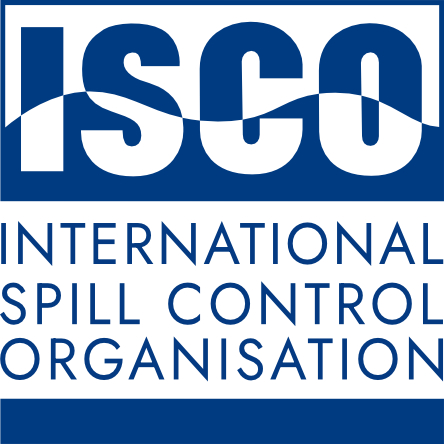ISCO PROFESSIONAL MEMBERSHIP – GUIDELINES FOR CANDIDATE ASSESSMENT
Categories of Professional Membership
A. Hon. FISCO
• The award of an Honorary Fellowship is at the discretion of the Executive Committee and is normally restricted to persons who have made an exceptional contribution in the field of spill control and/or to the furtherance of ISCO and its objectives.
• Existing Honorary Members of ISCO shall be eligible to be considered for election as Honorary Fellows
• Recommendations for award of Honorary Fellowships may be made by any member of ISCO and should initially be considered by the Membership Standards Committee. Subject to approval, such recommendations will be submitted to the Executive Committee for decision.
B. FISCO
• The award of Fellowship should be considered for individuals who are senior managers / persons with significant professional and /or academic attainment. Such persons will normally be expected to have at least 10 years of experience in a senior position of responsibility. In considering applications for award of FISCO a key consideration will be positive contributions made by candidates to the advancement of our industry and towards achieving the objectives of the organization.
• Where candidates for Fellowship are well known to members of the Professional Standards Committee, it may be an option to fast track the application process but this will be an exception not the rule as in all cases the full vetting procedure should be followed.
C. MISCO
• The award of Professional Membership should be considered for experienced individuals who have met the required qualification criteria, vocational, academic or a mixture of both, and are likely to be at an experienced senior supervisory level or above. Such persons will normally be expected to have at least 5 years experience in the industry and will have obtained relevant certification at both intermediate and advanced levels.
D. AMISCO
• The award of Associate Membership will be considered for experienced individuals who have met the required qualification criteria, vocational, academic or a mixture of both. Candidates are likely to be professionals involved in the spill response community as experienced operators, charge hands, etc., interested in following a career within the spill response community. Such persons will normally be expected to have at least 3 years experience in the industry and will have obtained relevant certification at both basic and intermediate levels.
E. Student Member
• Student Professional Membership is the class of membership for apprentices, students, and trainees as a first step in their career development process.
• The Professional Standards Committee only needs to be satisfied, from the information provided in the application form, that the candidate is attending an appropriate course of education or is employed as an apprentice or trainee of a recognised employer in the industry.
General Guidelines
1. The reputation and value of Professional Membership of ISCO depends on the thorough vetting of applicants and the taking of great care to ensure that awards are fully deserved and not given to inappropriate candidates. Detailed completion of the Professional Membership application process is essential for ensuring that the award of Professional Membership of ISCO maintains the high level of international respect ISCO has established.
2. The overall guiding principle is that no candidate will be awarded Professional Membership unless the Professional Standards Committee is fully convinced as to the veracity of the information given by the candidate.
3. Applicants are required to advise details of two persons who are willing to provide letters of reference in respect of candidates. Standard practice will be to follow up and request references unless there are good reasons for deciding that this is unnecessary. Such a decision would be reasonable in cases where the applicant is well known to one or more members of the Professional Membership Standards Committee.
4. The application form has been designed to elicit all of the information needed for the Professional Standards Committee to make well informed decisions but there are some circumstances that may make decision-making difficult.
5. In cases where the Candidate’s referee (who is charged with the responsibility for verifying information provided by the candidate) is not known to members of the Professional Standards Committee, there will be a need to check the reputation and standing of the nominated referee.
In such cases the member of the Professional Standards Committee who is handling the case will need to carry out checks. Options may include –
(a) Consultation with a principal of the company / organisation of which the referee is an employee.
(b) Consultation with other person/s resident in the same country as the referee, for example, the ISCO Member of Council for the country or a Fellow or Professional Member of ISCO who is resident in the country.
The Professional Standards Committee will need to be satisfied that the nominated referee is a person of integrity and that his/her verification of the information provided by the client can be relied upon.
6. In cases where the Professional Standards Committee has concerns about the information provided in the Application Form – for example, the authenticity of training certificates submitted and/or information included in the candidates statement of experience.
In this case the member of the Professional Standards Committee handling the case will need to make further checks with the relevant training organisation/s and/or the candidate’s employer.
In the event that any academic awards or certificates are found to be bogus or that experience statements are misleading or untruthful, the application for Professional Membership will be refused.
7. In some cases the Professional Standards Committee may determine that a candidate interview will be necessary to establish the appropriate class of Professional Membership to be awarded to an applicant.
Under this circumstance two interviewers shall be nominated by the Professional Standards Committee and an interview should take place, either face-to-face or via an audio-video internet link.
8. It is of the utmost importance that comprehensive records are made of any investigations and interviews carried out. These records and all other documentation associated with applications and award of Professional Membership must be preserved and may be required as evidence in any subsequent enquiry.
In the event that the competency of a Professional Member is called into question by a third party it may be necessary for ISCO to prove that every reasonable care was taken to properly assess candidates prior to making an award of the applicable grade of Professional Membership.
9. The Professional Standards Committee will determine the grade of Membership that may be offered to an applicant.
It should be noted that the grade of Membership granted may not coincide with the grade requested by an applicant on their application form. For example, the Professional Standards Committee may determine that a candidate looking for Member status will only be offered Associate Member status.
In such cases, the applicant will be provided with reasons for the decision taken and will be encouraged to re-apply for the higher class of membership at a later time.
10. Decisions made by the Professional Standards Committee should be based on consensus agreement. Individual members of the Professional Standards Committee are required to consult with each other and, if appropriate, with members of Council and/or the Executive Committee.
11. In the event of disagreement, The President of ISCO shall have a casting vote.





